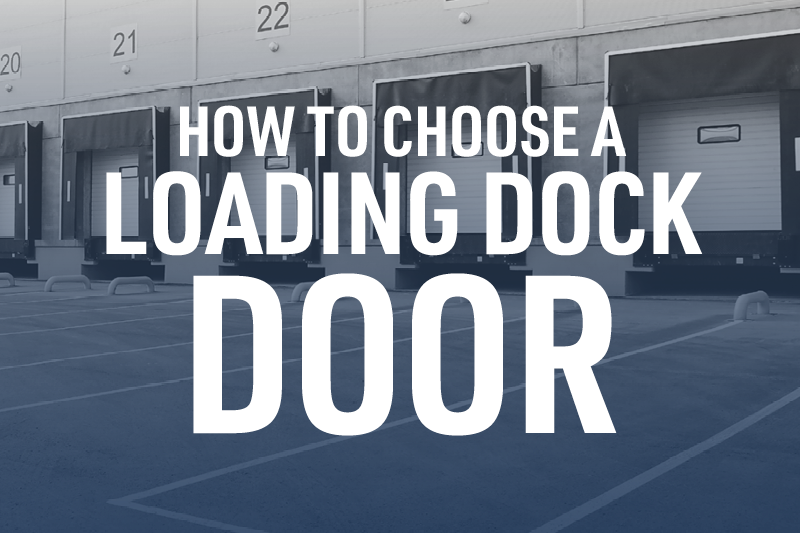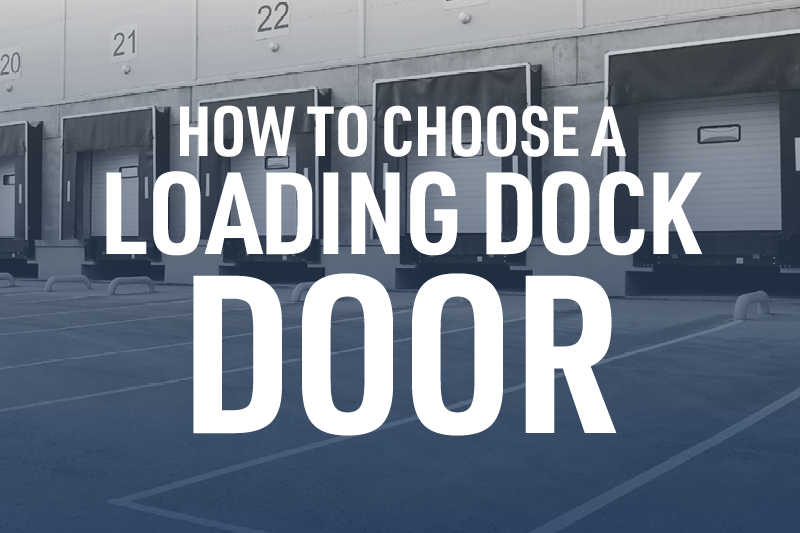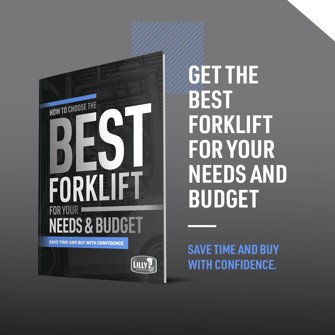

A door is sometimes a barrier, but your loading dock door should never be a barrier to your business. Loading bay doors do much more than just move up and down. They meet a multitude of needs in your facility. They let goods in, keep vermin out, save you money on climate control, and keep your staff and products safe. Every door does all of these in varying degrees. However, each variety of door will perform some functions better than others. That's where a thorough understanding of warehouse door types becomes so vital. Knowing what a door offers lets you find the right door for the right job. Read on to discover the 4 primary types of loading dock doors and how each benefits your facility.
Common Loading Dock Door Types
There is a legion of loading dock doors on the market. However, nearly all warehouse doors fit into one of 4 general types. Below, we describe each of these types, along with their pros and cons.
Roll Up Doors
Industrial roll-up doors are made of thin metal strips, typically aluminum or steel. These strips allow the door to roll into a tight coil mounted above the doorway. Their flexibility makes them easy to customize to any loading dock size and enables them to take up very little room when stored. This frees up valuable warehouse space for overhead storage that would be taken up by other varieties of loading dock doors. However, they can be more labor-intensive to service due to the increased number of joints and contact points with the railings.
Sectional Dock Doors
Sectional loading dock doors appear very similar to roll-up doors at a glance. However, these doors utilize larger metal panels instead of thin strips. These broader panels allow windows to be added to the door. This increases visibility in the loading dock area when the doors are closed. Also, due to their reduced number of joints and exposed railings, they tend to be easier to maintain than other doors.
That said, these loading dock doors take up more space than similarly sized roll-up doors. Their panels do not allow them to coil. Thus, when open, they are housed on railings that extend beyond the door. This is similar to the design of many residential garage doors. This takes up potential storage space and can create a low overhead environment for forklifts, depending on the height.
Knockout Dock Doors
With forklifts passing in and out, it is only a matter of time before any loading dock door is bumped by heavy equipment. The force of this impact can damage the door. On most, this puts the door out of commission until a repair technician can come to fix the door. However, knockout dock doors are designed to account for these impacts. When struck, they break free of their railings without damage to the door or forklift. Afterward, a worker pops the door back into place, fixing it in minutes, not days.
There can be security concerns surrounding knockout dock doors. Older models will knock out of place if struck on either side of the door. This is a weakness that thieves can exploit to gain access to your facility. However, modern knockout dock doors correct this. These doors break away only if struck from the inside of the facility. This helps improve warehouse security.
High-Speed Dock Doors
High-speed loading dock doors are best used when maintaining your facility's internal environment or excluding the environment outside of your facility. These doors open and close faster than any other variety on the market. This helps maintain temperature control within your facility and keeps vermin and contamination out. Cold storage, food service, or pharmacology-focused facilities commonly benefit from this type of loading dock door.
These doors are made of either vinyl or rubber to ensure smooth, rapid movement. Vinyl varieties can be fitted with clear panels for improved visibility. Rubber provides better protection from cuts or tears. Both require more maintenance than other doors. However, they save you a lot of money if you store sensitive goods.
Expert Advice for a Critical Decision
Selecting the best loading dock door for your facility is the art of balancing priorities. Each door option will favor some benefit over others. If you are uncertain of which door will best fit your application, let us help. Our experts are trained to analyze your needs and suggest the best door for your operation. Once your door is installed, you can depend on us for all dock door repairs, inspections, and planned maintenance. To learn more about your options in a loading dock door or to schedule a consultation, contact us online or visit one of our Mid-South locations:
Arkansas - Jonesboro
Alabama - Birmingham, Dothan, Irondale, Madison, Mobile, and Montgomery
Mississippi - Tupelo and Richland
Tennessee - Jackson, Memphis, Knoxville, and Kingsport
Further Reading
Dock Door Maintenance Vs. Repair – Which One Costs Less?
Loading Dock Fire Door Inspections Save Lives and Money
5 Simple Ways To Improve Loading Dock Safety & Efficiency
Posts by Tag
- Forklift (61)
- Forklift Service (19)
- Electric Forklifts (16)
- Forklift Safety (14)
- Forklift Attachments (12)
- Toyota Forklifts (12)
- Warehouse Planning (10)
- Parts (9)
- Warehouse Automation (8)
- Clark Forklifts (7)
- Loading Docks (7)
- Material Handling Education (7)
- Pallet Racking (7)
- Customer Solutions (6)
- Forklift Batteries (6)
- Purchasing Options (6)
- Aerial Equipment (5)
- Forklift Rental (5)
- Heavy Equipment (5)
- Forklift Accessories (4)
- Forklift Fleet Management (4)
- Forklift Tires (4)
- Forklift Training (4)
- Products (4)
- Yard Spotter Trucks (4)
- Linde (3)
- Specialty Forklifts (3)
- Used Equipment (3)
- Utility Vehicles (3)
- IC Forklifts (2)
- Manitou (2)
- Pallet Jacks (2)
- Warehouse Doors (2)
- COMBiLift (1)
- Custom Shop (1)
- Forklift Brakes (1)
- Forklift Warranty (1)
- Gehl (1)
- Komatsu (1)
- Product Review (1)
- Recruitment (1)











